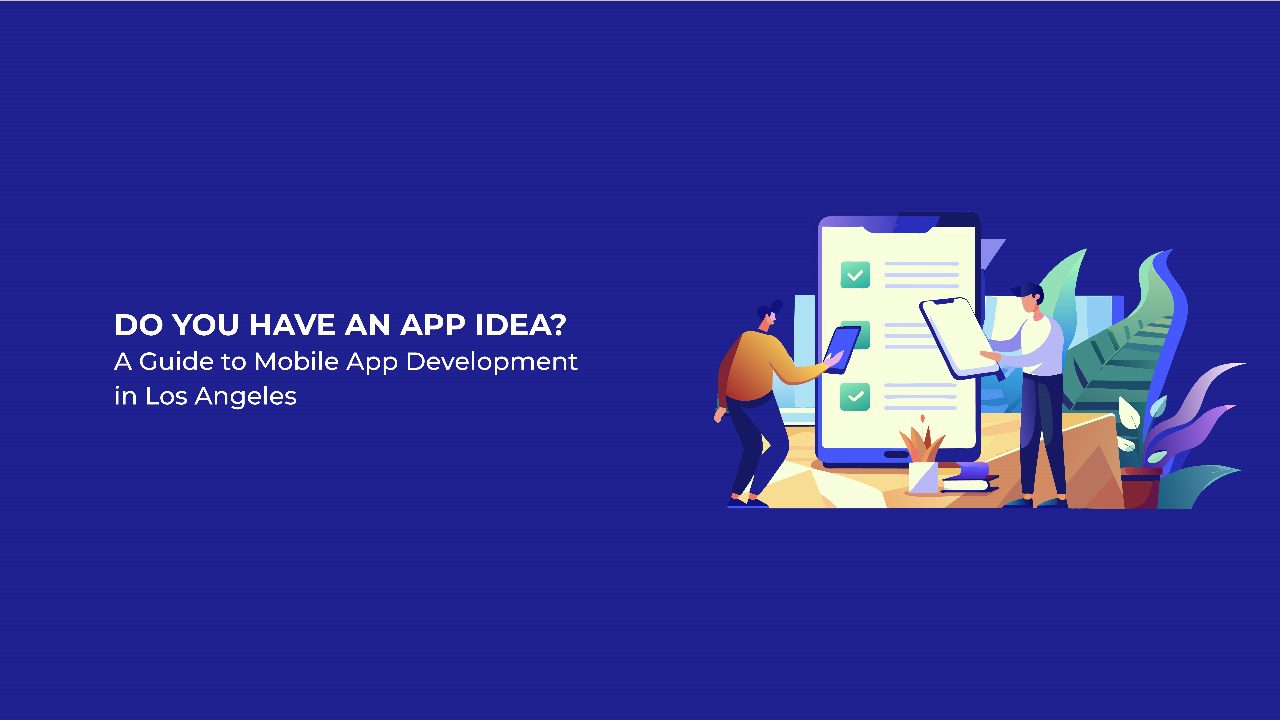
AR in Education – Use Cases, Benefits, Challenges, and More
Continue Reading

Have an app idea but don’t know where to start? Los Angeles is a thriving hub for mobile app development, offering top-tier talent, cutting-edge technology, and endless networking opportunities. Whether you’re a startup or an established business, finding the right development partner in LA can turn your vision into reality. This guide walks you through the essentials of mobile app development in Los Angeles, from idea to launch.
Los Angeles is not just about Hollywood—it’s also a major tech and startup hub. Here’s why it’s an ideal city for mobile app development:
✔ Access to Top Talent – Home to leading developers, UI/UX designers, and project managers.
✔ Innovation-Driven Environment – LA fosters cutting-edge technology and creative solutions.
✔ Networking & Investment Opportunities – Major events like LA Tech Week and Mobile App Meetups help connect founders with investors and tech experts.
✔ Proven Success Stories – Apps like Snapchat, Tinder, and Calm were developed in Los Angeles.

✅ Define your app’s purpose, target audience, and key features.
✅ Conduct market research and competitive analysis.
✅ Validate your idea with user interviews and feedback.
✅ Create a Minimum Viable Product (MVP) strategy to test the market.
✅ Create a visually appealing, user-friendly interface.
✅ Focus on seamless navigation and intuitive design.
✅ Conduct usability testing to refine the experience.
✅ Utilize wireframing and prototyping tools to map out user interactions.
✅ Native Development (iOS & Android) – Best for high-performance apps.
✅ Cross-Platform (React Native, Flutter) – Cost-effective and faster deployment.
✅ Choose the right tech stack based on your budget and goals.
✅ Implement backend infrastructure for data storage and security.
✅ Integrate APIs for third-party services like payment gateways, geolocation, and notifications.

✅ Perform functionality, performance, and compatibility testing.
✅ Ensure compliance with App Store and Play Store guidelines.
✅ Optimize for speed, security, and user experience.
✅ Beta test with real users to gather valuable feedback.
✅ Plan a marketing and launch strategy for better visibility.
The cost of app development varies based on complexity and features:
💰 Basic App: $10,000 – $50,000
💰 Mid-Level App: $50,000 – $150,000
💰 Advanced App: $150,000+

Additional costs include app maintenance, hosting, and marketing.
✔ App Complexity – More features mean higher development costs.
✔ Platform Choice – Native apps cost more than cross-platform.
✔ Third-Party Integrations – Payment systems, maps, or AI features add to cost.
✔ Development Team Rates – Costs depend on expertise and experience.
Estimate your app development budget with our interactive tool
This is a rough estimate. Actual costs may vary based on specific requirements and market conditions.
✔ Portfolio & Experience – Review past projects and client testimonials.
✔ Technical Expertise – Ensure proficiency in the latest frameworks and technologies.
✔ Communication & Transparency – Look for a team that provides regular updates and feedback.
✔ Post-Launch Support – Check for maintenance and upgrade services.
✔ Security & Compliance – Make sure your app follows industry standards.
✔ Scalability & Performance – Apps should be built for future growth.
Want to make money from your app? Here are some proven revenue models:
📌 Subscription Model – Offer premium content for a monthly fee.
📌 In-App Purchases – Sell digital products, extra features, or exclusive content.
📌 Freemium Model – Provide a free basic version with premium upgrades.
📌 Ad-Based Revenue – Monetize through banner ads, video ads, and affiliate marketing.
📌 Sponsorship & Partnerships – Collaborate with brands for sponsorships.
Even a great app won’t succeed without a solid marketing plan:
🚀 App Store Optimization (ASO) – Optimize titles, descriptions, and keywords.
🚀 Social Media Marketing – Leverage platforms like Instagram, LinkedIn, and TikTok.
🚀 Influencer Collaborations – Work with tech influencers to boost credibility.
🚀 PR & Media Outreach – Get featured on tech blogs and publications.
🚀 User Engagement & Retention – Use push notifications and rewards.
Stay ahead of the competition by leveraging these trends:
🔹 AI & Machine Learning – Smart algorithms improve user experience.
🔹 Augmented Reality (AR) & Virtual Reality (VR) – Interactive apps enhance engagement.
🔹 5G Technology – Faster speeds enable better app performance.
🔹 Blockchain Integration – Secure transactions and data protection.
🔹 Wearable App Development – Apps designed for smartwatches and IoT devices.
Trusted by
















The vibrant tech scene, skilled talent pool, and a plethora of networking opportunities make Los Angeles an ideal location for your mobile app development journey. By understanding the development process, carefully considering the costs involved, and selecting the right development partner, you can increase your chances of success in the competitive mobile app industry.